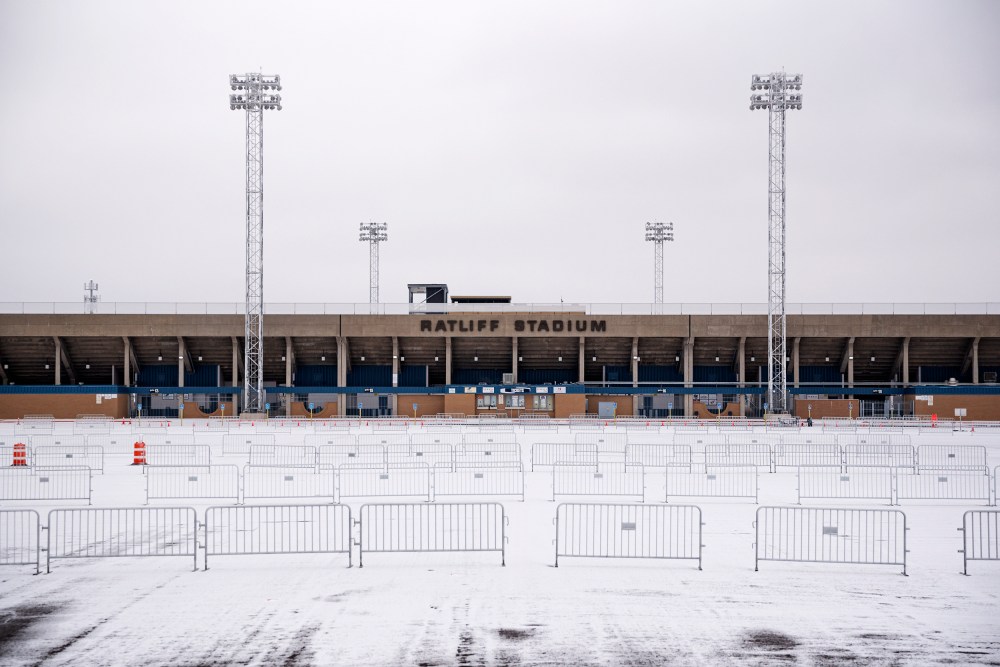The Texas Department of State Health Services recently announced that 35,000 doses of the Covid-19 Pfizer-BioNTech vaccine were shipped from the federal government — but arrival is uncertain due to the hostile weather conditions. Moderna didn’t ship any vaccine doses at all to Texas, to avoid any potential losses.
COVID-19 vaccine shipments postponed. DSHS expects this week’s shipments to begin arriving Wednesday at the earliest. Deliveries will be subject to local conditions.
— Texas DSHS (@TexasDSHS) February 16, 2021
Postponed vaccinations will resume as soon as it is safe. #COVID19TX #HealthyTexas pic.twitter.com/NHMr0HpIqP
Seniors and persons with chronic conditions had precious appointments canceled as clinic administrators themselves dealt with power outages, staff emergencies and highway closures.
In Harris County, medical professionals had to scramble when a backup generator failed and thousands of doses had to be quickly administered despite dangerous conditions to avoid entirely losing what is now the most valuable asset in the country.
There is no doubt that the vaccination progress made over the last two months faces significant setbacks.
All doses were administered or properly stored, but there is no doubt that the vaccination progress made over the last two months faces significant setbacks as people are forced into warming shelters, motels and hotels, or (like my family) forced to pack into friends’ homes with small generators, which poses even more health risks.
The extent of the losses of vaccines and how many more cases of Covid-19 could occur are still unknown, but a recent investigation found that nearly 2,000 doses of Covid-19 vaccines were wasted in January, largely due to poor refrigeration or spoiled doses. Given the power outages as well as potential shipping issues, it’s highly possible that even more will go to waste.

Further delays due to hospitals losing water, clinics canceling vaccination appointments and people feeling nervous about driving in current weather conditions will inevitably result in further delays in achieving herd immunity, or even moving to the next phase of vaccination for the state.
Even more concerning are the thousands of Texans (along with millions of others in the Southeastern states) in warming shelters in closed spaces, setting up people for both catching and transmitting Covid-19 to others. With incredibly transmissible variants looming, these shelters could become superspreaders.
Political leaders in Texas, bolstered by Gov. Greg Abbott, have made careers out of shortchanging a number of things on the cheap — from public education to public access to health care to public health measures to contain Covid-19 — and millions of Texans have been left in the cold as a result.
With incredibly transmissible variants looming, these shelters could become hotspots of superspreader situations.
For Texans, the power outage was not as surprising as the once-in-a-generation below-freezing temperatures and snowfall. Texans have been here before, forced to bear the consequences of the conscious implementation of a statewide directive from the Electric Reliability Council of Texas (ERCOT), the independent agency responsible for the electric grid that provides 90 percent of the state’s power supply.
ERCOT has had negligible oversight from the Public Utility Commission of Texas and Texas Legislature and five independent board members, none of whom live in Texas (the agency removed their names from its website after they reportedly received threats, but will be restoring them).

The crisis is more or less a logistical one: Impending weather prompted a series of outages due to state adherence to an energy-only market, rather than a capacity market. That’s because in capacity markets, power agencies commit years in advance to pay energy providers for certain levels of power generation to ensure adequate supply. With an energy-only market such as that used by ERCOT, you pay as you go, day-by-day, based on what you need in the moment.













